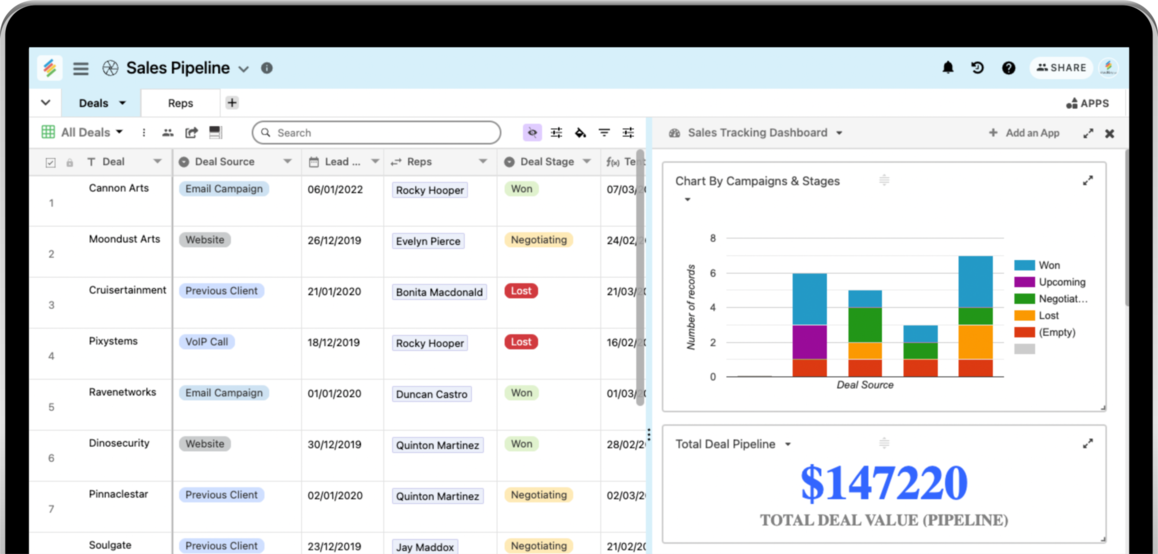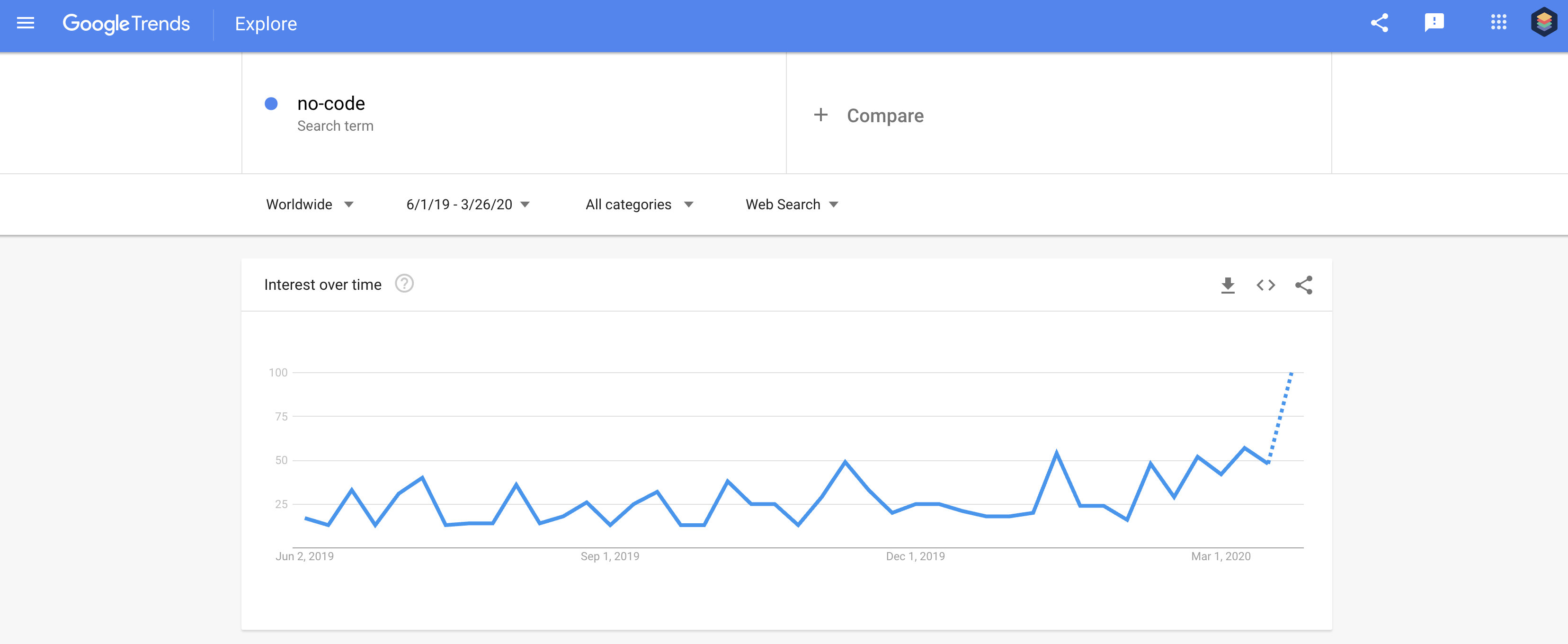Checking Out the Advantages of Scalable Data Sources That Need No Coding Skills for Efficient Information Monitoring Solutions
The development of scalable databases that eliminate the necessity for coding skills provides a transformative chance for companies looking for reliable information management services. As we think about the effects of such developments, it ends up being essential to take a look at how they can improve the landscape of information administration and drive lasting growth in an affordable atmosphere.
Improved Availability for Individuals
Improved availability for customers is a critical aspect of scalable databases, ensuring that data monitoring systems are straightforward and instinctive. In a period where data-driven choices are vital, access permits a bigger variety of customers, consisting of those without comprehensive technical know-how, to involve with data source systems successfully. This democratization of data access facilitates boosted cooperation throughout divisions, equipping workers to extract insights and make notified choices.
Easy to use user interfaces, such as drag-and-drop functions and visual data depiction, streamline complicated data interactions. These enhancements reduce the learning contour linked with typical data source monitoring, allowing individuals to concentrate on leveraging data rather than coming to grips with technical complexities. Moreover, scalable data sources usually integrate adjustable dashboards and real-time analytics, providing customers with instant insights customized to their specific demands.

Cost-Effectiveness and Source Cost Savings
Effective information monitoring not just rests on accessibility yet additionally on cost-effectiveness and resource savings. Scalable data sources made for individuals with no coding abilities dramatically lower monetary concerns usually related to traditional database administration systems. By eliminating the demand for specialized programs know-how, companies can allocate their sources more successfully, focusing funds on core organization activities instead of extensive training or employing competent employees.
Moreover, these databases commonly make use of cloud-based options, which even more lower expenses connected to hardware and upkeep. Organizations can scale their data source options according to their needs, preventing the expenditures sustained from over-provisioning sources. This flexibility indicates companies can adjust to altering demands without incurring unneeded prices, causing significant long-lasting cost savings.
In addition, user-friendly user interfaces streamline data entry and administration processes, minimizing the moment invested in management tasks. This effectiveness equates right into labor expense financial savings, enabling groups to concentrate on calculated efforts instead than regular upkeep. Generally, embracing scalable data sources that need no coding skills promotes a more affordable method to data management, enabling organizations to optimize their sources while keeping high degrees of operational effectiveness.
Improved Collaboration Across Teams

Additionally, scalable databases assist in seamless communication amongst employee. With easy to use interfaces that need no coding abilities, employees can quickly develop, modify, and share records or control panels tailored to their particular requirements. This democratization of information empowers non-technical individuals to add understandings, enhancing the collaborative setting.
Furthermore, these data sources support simultaneous accessibility, enabling several customers to work on the exact same dataset all at once. This feature enhances productivity, as groups can participate in joint information evaluation without the danger of variation control concerns. The capacity his explanation to leave notes or remarks straight within the data source better advertises discussion and clarifies data interpretations.
Streamlined Data Management Processes
In today's data-driven environment, companies recognize the necessity of streamlined information management processes to make the most of efficiency and precision. By leveraging scalable data sources that need no coding abilities, organizations can streamline their information handling and lower the intricacies commonly learn the facts here now related to standard database systems. This ease of access empowers non-technical customers to involve directly with data, promoting quicker decision-making and minimizing reliance on specialized IT workers.
Structured information administration processes boost process by automating routine jobs such as data access, recognition, and reporting. Automated information integration ensures that info from various resources is aggregated seamlessly, removing silos and fostering a combined view of important organization metrics (no-code). Straightforward interfaces enable employees to manipulate data conveniently, enabling them to produce understandings that drive strategic efforts without the demand for extensive training.
This effectiveness not just accelerates operational procedures yet also lessens the potential for human error, making sure that information remains reputable and exact. Inevitably, streamlined data administration procedures via scalable data sources lead to improved performance, permitting organizations to concentrate on core tasks while making certain that their data management methods are efficient and efficient.
Scalability for Growing Businesses

For broadening business, the ability to scale up or down is essential. A scalable database can deal with an influx of information generated from new customers, items, or solutions, guaranteeing that business procedures stay continuous. These data sources offer the capability to handle peak loads successfully, which is necessary during durations of rapid development or seasonal spikes.
Additionally, several scalable database solutions are created with user-friendly user interfaces that require no coding abilities, empowering non-technical team to manage information efficiently (no-code). This democratization of information administration permits organizations to allot resources purposefully and decrease dependence on specialized IT workers
Inevitably, adopting a scalable data source not only boosts operational effectiveness yet also promotes an environment where services can develop and introduce without the constraints of typical database systems. This flexibility settings companies for lasting success in today's competitive landscape.
Verdict
In final thought, scalable databases that require no read the article coding skills provide significant benefits for reliable information monitoring. By enhancing information administration processes and offering scalability for growing companies, such remedies make it possible for organizations to adjust to changing needs properly.
Boosted access for users is a crucial element of scalable databases, making sure that information monitoring systems are user-friendly and user-friendly.Straightforward user interfaces, such as drag-and-drop functions and visual data representation, streamline complex information communications. Overall, taking on scalable databases that need no coding skills cultivates a much more cost-effective technique to data monitoring, allowing companies to maximize their sources while preserving high degrees of operational performance.
By leveraging scalable databases that call for no coding skills, organizations can simplify their information handling and decrease the intricacies usually associated with standard database systems - no-code.Streamlined information management procedures enhance process by automating routine tasks such as information entry, recognition, and reporting